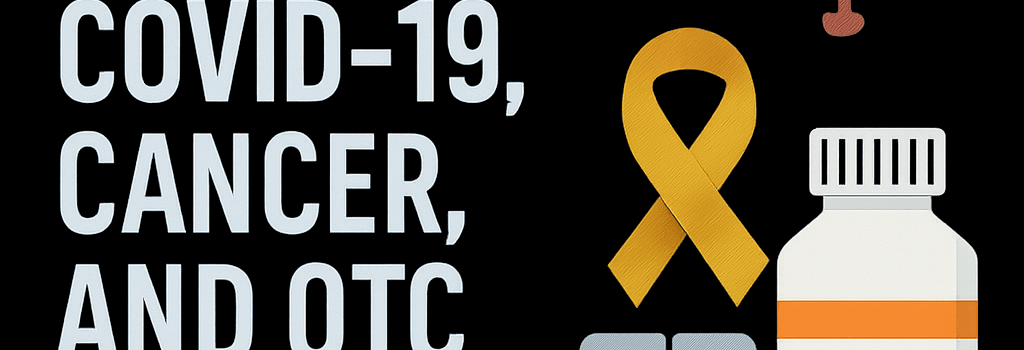Ivermectin Myths: COVID-19, Cancer, and OTC Legislation

Introduction
Over the past several years, ivermectin—a macrocyclic lactone antiparasitic agent—has become the focal point of a sprawling wave of misinformation. Originally celebrated for its role in treating onchocerciasis (river blindness) and strongyloidiasis, the drug has been falsely touted as a cure-all for COVID-19, cancer, arthritis, and a litany of other maladies. Despite high-quality clinical trials and clear regulatory guidance showing no benefit for these off-label uses, social media amplification and state-level legislative efforts to reclassify ivermectin for over-the-counter (OTC) sale demonstrate how scientific nuance can be drowned out by anecdote and ideology.
Background of Ivermectin
Pharmacological Profile
Ivermectin is derived from avermectins produced by the soil bacterium Streptomyces avermitilis. It acts by binding to glutamate-gated chloride channels in invertebrate nerve and muscle cells, leading to hyperpolarization, paralysis, and death of parasites. In mammalian cells, the drug’s affinity for GABA-gated chloride channels is low, contributing to its therapeutic window. Typical human dosing ranges from 150200 g/kg orally for parasitic infections, producing peak plasma concentrations in the low nanogram-per-milliliter range.
FDA Approval and Approved Uses
The US Food and Drug Administration (FDA) approved ivermectin for human use in 1987 under the trade name Stromectol, specifically for treating onchocerciasis and strongyloidiasis. Subsequent indications include head lice and scabies. Veterinary formulations, often five times the concentration of human tablets, remain strictly off-label for human consumption. Any repackaging or dispensing without prescription is a violation of 21 CFR parts 210 and 211 governing Current Good Manufacturing Practice.
Ivermectin and COVID-19: Clinical Evidence
Early in the COVID-19 pandemic, an in vitro study suggested that ivermectin inhibited replication of SARS-CoV-2 at concentrations near 2M—over 50 times higher than those achievable in human plasma with standard dosing. This discrepancy was noted by pharmacologists and led to cautionary statements from regulatory bodies.
- In vitro findings: High concentrations required to achieve antiviral effect.
- Observational studies: Small cohorts with conflicting endpoints.
- Randomized controlled trials (RCTs): Multiple meta-analyses (Cochrane, JAMA) concluded no statistically significant reduction in hospitalization or mortality.
By late 2021, the National Institutes of Health (NIH) COVID-19 Treatment Guidelines Panel and the World Health Organization (WHO) both recommended against ivermectin’s use outside clinical trials. Nevertheless, online communities and certain political factions championed it, prompting the FDA to post and then delete a now-famous warning: “You are not a horse. You are not a cow. Seriously, y’all. Stop it.”
Emergence of Cancer-Related Claims
More recently, narratives claiming that ivermectin can cure various cancers have proliferated. Preclinical work has shown that, at concentrations above 5M, ivermectin may induce apoptosis in certain cancer cell lines via PAK1 inhibition and modulation of WNT/-catenin pathways. However, these effects are observed in vitro or in animal xenograft models and have not translated into proven clinical efficacy.
“It’s certainly not a cancer breakthrough, from what we can tell. But it’s being actively investigated,” said Larry Norton, medical director of the Evelyn H. Lauder Breast Center at Memorial Sloan Kettering Cancer Center, in March 2025. Early-phase trials (e.g., NCT04327295) are ongoing, but no phase III data support off-label oncologic use.
Oncologists report patients delaying standard-of-care therapies—such as surgical resection, radiotherapy, and cytotoxic regimens—in favor of unproven ivermectin protocols, often resulting in tumor progression and diminished survival prospects.
Spread of Misinformation on Social Media
Analyses by the Oxford Internet Institute have documented coordinated bot and troll networks amplifying ivermectin claims across multiple platforms. Algorithmic recommendation systems further entrench echo chambers, exposing susceptible users to repetitive, emotionally charged anecdotes. A 2024 study in Nature Medicine estimated that health-related misinformation on social platforms increased vaccine hesitancy by 35% in surveyed populations.
State Legislative Responses
In 2025, an NBC News investigation identified at least 16 states that have introduced or enacted bills to permit OTC sale of ivermectin. Proponents argue for consumer choice and reduced barriers to access; critics warn of unintended harm from unsupervised self-medication.
- Passed OTC laws: Idaho, Arkansas, Tennessee.
- Awaiting governor’s signature: Louisiana.
- Under consideration: Alabama, Georgia, Kentucky, Maine, Minnesota, Mississippi, New Hampshire, North Carolina, North Dakota, Pennsylvania, South Carolina, West Virginia.
Despite these laws, federal regulations under the FDA’s prescription drug designation remain in force. A survey of 15 independent pharmacies in affected states found none dispensing ivermectin OTC, citing 21 CFR 207.33 and internal compliance policies. National chains—CVS and Walgreens—have confirmed that they continue to require a prescription.
Regulatory and Legal Landscape
The FDA’s OTC drug monograph process (21 CFR part 330) mandates consumer-friendly labeling, safety statements, and dosage guidelines—elements absent from prescription-only packaging. State-level statutes seeking to override federal prescription status raise federal preemption issues under the Supremacy Clause. Pharma industry legal experts note potential challenges: if a state voids FDA labeling requirements, pharmacists could face liability under tort law for dispensing inadequately labeled products.
Public Health Implications and Expert Recommendations
Poison control centers reported a 200% increase in calls related to ivermectin in 2021–2022, with documented cases of neurotoxicity, hypotension, and even fatal outcomes at high doses. The American Society of Clinical Oncology (ASCO) and the Infectious Diseases Society of America (IDSA) have jointly released statements urging adherence to evidence-based protocols and cautioning against off-label ivermectin prescriptions.
Conclusion
Ivermectin remains a critical tool against parasitic diseases, but substantial evidence does not support its use for COVID-19, cancer, or other off-label indications. State efforts to reclassify ivermectin as an OTC product highlight tensions between scientific evidence, public policy, and social media–driven myths. Moving forward, a combined approach—strengthening federal regulatory enforcement, enhancing public education, and refining social platform moderation—is essential to safeguard patient health and uphold evidence-based medicine.